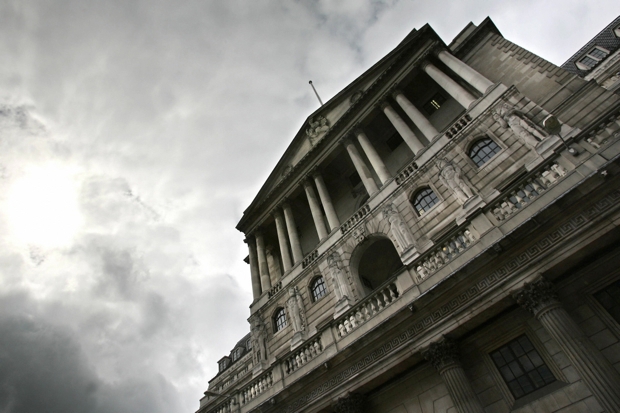The national obsession with the Bank of England base rate is beginning to make my blood boil.
If low interest rates were the saviour of the Great British economy they’re heralded to be, why are house prices sky high? Why are young renters finding it more difficult than ever to buy one? Why are savers and pensioners seeing their incomes shrink? Why is the average British household expected to have racked up £10,000 in unsecured debt by the end of the year? None of these things make me thank my lucky stars I’m living in low-interest Britain.
What I believe we need is tax cuts – that’s what will get people spending, stimulate demand and bring about growth. To date, the low-interest-rate environment has failed to do so.
Of course, I’m glad that my mortgage rate is a tiny fraction of what my parents were lumbered with when I was in primary school. But back then, when the base rate was 15 per cent and they were raising a young family, their mortgage was just a tiny fraction of what mine is and will be as I raise my own family – and most probably what it will still be when my children have children.
For the past eight weeks, the financial press has been awash with speculation about a cut in the base rate to 0.25 per cent – the first change to monetary policy since March 2009. And most commentators have been banging on about how great this will be – particularly the confidence it will instil and the benefits it will bring to mortgage customers. Forgive me while I disagree.
We’re going to be navigating political and economic turbulence for the next few years as the powers-that-be grapple with Brexit. I don’t think a 25 basis point cut in the base rate is going to make us all dash out and revive the fortunes of M&S and the rest of Great Britain plc any time soon. As for mortgages, rates are already the lowest they’ve ever been – with the very cheapest hovering around the 1 per cent mark. So I doubt the country’s banks and building societies are going to react to a tiny tinkering of the base rate by slashing the cost of home loans. Instead, this will happen: cheap rates will allow homeowners to continue taking on ever bigger mortgages, some will pay down more of the capital debt but house prices will creep up and up, without the required increase in spending to stimulate economic growth.
Tim Price of PFP Wealth Management is a fellow rate cut cynic. He told me: ‘The terrible failing of almost all macro policy today is that it takes no account of behavioural economics – how people respond in the real world to clueless technocrats pulling their various policy levers and hitting their various policy buttons.
‘The economy is more complex than a simple machine. The lower you drive interest rates, the more you make the marginal investor save. So good luck expecting people to spend more when they – correctly – fear that they will need to make extra provision for saving.’
By cutting rates now, the Bank of England also binds its own hands in being able to stimulate the economy further down the line. It will be forced to find other ways to reinvigorate the economy, argues Paddy Osborn, academic dean at the London Academy of Trading.
‘Financial markets know that rates cannot fall much below zero, and a cut from 0.5 per cent to zero really won’t make much difference in the overall scheme of things. Remember, the base rate was cut from 5 per cent to 0.5 per cent in just a few months during 2008/9 – now that’s what I call a worthwhile rate cut.’
Instead, what we need, I believe, are fiscal alternatives – let’s cut taxes for those most likely to spend the windfall and stimulate demand. We could hike the personal allowance further, freeing even more of the lowest paid of the burden of paying tax altogether. While we’re at it, let’s chop one of the most unpopular taxes too – VAT. Brits love a bargain and 20 per cent off EVERYTHING would certainly bring about the feel good factor and encourage people to go out and spend – helping the high street and the wider economy. OK, axing it altogether is probably a tad unrealistic but why not return it to the 17.5 per cent level it previously stood at – or even 15 per cent? That would certainly have made the calculations easier in my school maths lessons.
And let’s get a move on with upping the earnings threshold – the point when the 40p tax rate kicks in. It was scheduled to rise to £50,000 by the end of parliament by 2020. Who knows how long Theresa May will be given to get on with running the country before a general election is called so why wait, and why not up it higher still?
We could also get a bit more imaginative. Why not waive income tax for pregnant women stuck on stingy statutory maternity pay of just £135 a week? (I may have a vested interest here). The possibilities are endless. But seeing as the Bank of England isn’t allowed to set taxes, maybe Philip Hammond’s first job should be to start exploring the possibilities. That would help May ‘build a better Britain’ and stop all the obsessing over the bloody base rate.
Laura Whitcombe is knowledge and product editor at ThisisMoney.co.uk.






Comments